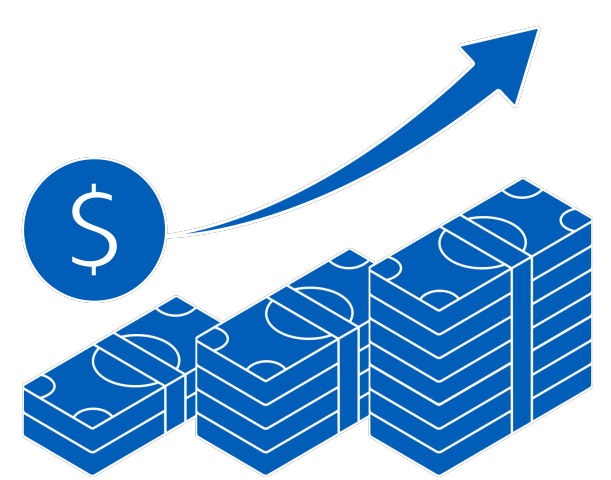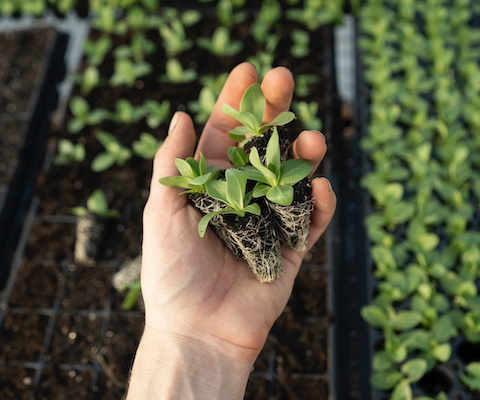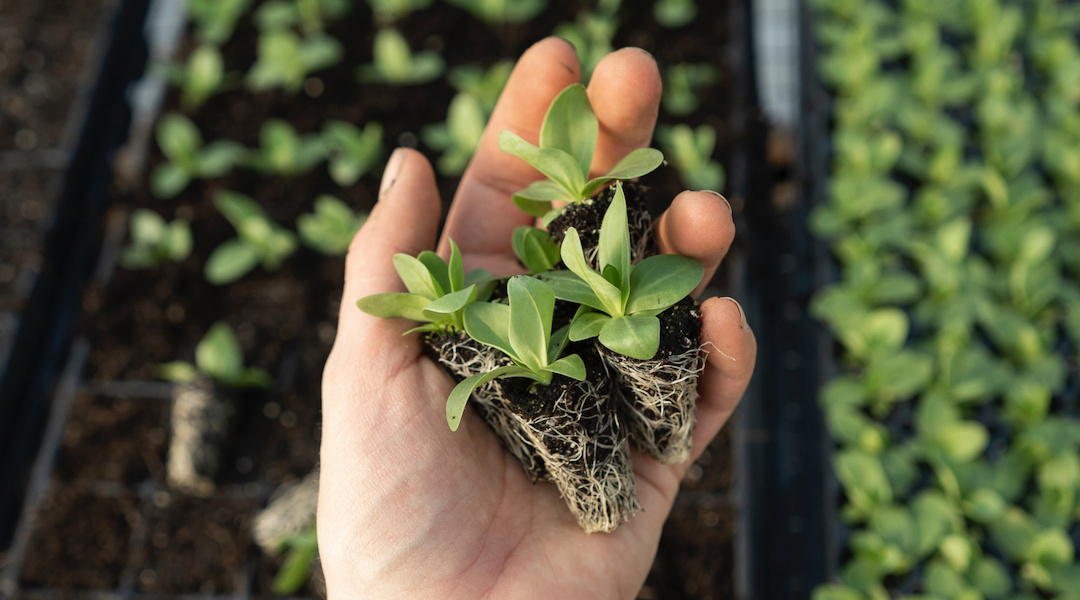You are now reading:
How SMEs can get started with their sustainability strategies
1 of 3



Starting or growing a business? Enjoy more than S$4,000 savings now with essential solutions. T&Cs apply.
Find out more
Your go-to sustainability guide. Get your customised report today by taking the quiz now.
Take the quizyou are in GROUP WHOLESALE BANKING


You are now reading:
How SMEs can get started with their sustainability strategies
Sustainability, as a concept, traces its roots back to the 1980s when it was introduced as a global commitment to protect the planet and its resources. Over time, it has gained increasing prominence as societies began to make louder calls for organisations to be responsible corporate citizens.
Fast forward to today, sustainability has taken on a broader meaning that extends beyond just the environment. It also takes into account social welfare and good governance. More so, it’s now seen as a catalyst for economic growth. Southeast Asian governments are acting swiftly and have been establishing policies that will push businesses towards sustainable transitions.
In Singapore, the Green Plan 2030 was unveiled early this year--an initiative that charts the country’s green targets in the next decade. This ‘whole-of-nation movement’ puts sustainability at the top of local organisations’ agendas. Small and medium-sized enterprises (SMEs), for their part, are expected to make the most significant contribution. As they employ 70% of the country’s workforce, SMEs have the potential to influence many Singaporeans’ attitudes toward climate change, social equity, and other sustainability issues.
However, with a number of SMEs still reeling from COVID-19’s economic impact, developing a sustainability strategy may not be immediately on of your priority list. You may also feel that the task at hand – assessing your operations and shifting your products and services to be more environmentally and socially sustainable – is a daunting one.
Being sustainable however, can benefit your business, opening up revenue streams driven by new products and services. For one thing, you’ll be better placed to meet your customers’ shifting demands – consumers are increasingly clamouring for socially- and environmentally-responsible offerings. In a 2019 Accenture study, 83% of the 6,000 consumers surveyed across North America, Europe, and Asia say they prefer buying from companies selling green products. In fact, if Southeast Asia develops its sustainable economy, a study by global consultancy firm Bain & Company says the region could gain an economic advantage of up to US$1 trillion annually by 2030.
To help you get started on your sustainability journey, we’ve suggested the steps you can consider taking to build your sustainability strategy promptly and efficiently.
An approach to corporate sustainability management that’s growing in popularity is context-based sustainability (CBS). This approach creates an accurate view of a company’s performance that takes into account the impact on environmental and social resources and compares it against local and global limits.
Instead of just looking solely at your company’s performance, CBS urges you to compare metrics with existing social and environmental thresholds. It helps you see your ecological footprint as you consider the bottom line of people, profit, and planet. ‘People’ is your social responsibility to stakeholders; ‘profit’ is your traditional business success metric; and ‘planet’ is your company’s environmental responsibility.
An excellent place to start is coordinating your plans with the UN’s Sustainable Development Goals (SDGs). SDGs are 17 global goals set in 2015 as a universal call to achieve a sustainable future for all by 2030. The UN monitors specific targets for each goal using tools to track progress. Some of the goals are zero hunger, clean water and sanitation, affordable and clean energy, responsible consumption and production, and climate action.
From here, identify your business’s areas of impact to people, profit, and planet. Set targets that are realistic and achievable. Examples are providing employees with living wages (people), redesigning products for consumer safety (profit), and lessening greenhouse gas emissions (planet).
Your sustainability strategy should support your business’s mission, align with your operations, and inform your employees’ actions and decisions. It’s critical to look into every facet that will affect your day-to-day activities.
How can your business expand sustainably? A restaurant, for instance, may look into urban farming to source their ingredients from there, ensuring organic produce and reducing waste in the process. The same urban farm may supply other restaurants nearby.
Banyan Tree Hotels and Resorts – Singapore’s Sustainable Business Awards 2019 honoree for Sustainability Strategy – for its part, is guided by a corporate ethos that emphasises building in harmony with nature and developing the communities where their hotels are located. The company incorporates sustainable practices from conceptualisation to implementation.
In the concept phase, they envision how they can maximise a destination’s income while preserving its culture and beauty. During the designing and construction phases, they establish operational efficiency, safeguard ecology, and empower communities. Before pre-opening, they upskill local labour and direct tourism income to the local districts. During hospitality operations, they embed sustainability values in all proceedings. The integrated and participatory approach has led to greener and more developed communities that support the brand’s growth.
To implement the new measures you’ve reviewed for your business, you’ll need to invest at the outset.
Sustainability can come at a cost. Plan ahead and look into grants and incentives that aid your SME’s goals.
UOB offers sustainable financing solutions that focus on sectors under green trade, smart city, real estate, and green circular economy frameworks. Each framework corresponds to different UN Sustainable Development Goals. Some of the sectors covered are green transport, renewable energy, waste management, recycling, climate change adaptation, and more. UOB’s sustainable financing is a simplified, streamlined, and transparent process that puts customised solutions forward so you can meet your exact needs. If you’re looking for insights and advice, you can also tap into UOB’s industry expert teams.
The National Environment Agency, the leading public organisation responsible for ensuring Singapore’s clean and sustainable environment, offers grants to businesses exploring waste reduction, recycling, energy efficiency, automation, and quieter construction. They provide eligible projects up to 70% cost coverage.
Under the government’s Enterprise Sustainability Programme (ESP), SMEs can get assistance in building, strengthening, and fostering their sustainability capabilities. The ESP provides training, product and service development projects, partnerships with TACs and corporates, and connections with green service providers.
With your targets, assessed internal capabilities, financing options, and business model in place, you can now embark on formulating your concrete action plan. Remember that sustainability is not just another business ‘programme'—it will change the way you do business and potentially open up new business models and revenue streams.
And while it will involve an initial investment, the benefits in the long run will outweigh this – and help ensure your business stays competitive and relevant to the needs of your customers.
Leverage on UOB’s sustainable financing frameworks to provide ease of access, lower entry costs and reduce time to market. Find out how UOB can help you, contact us at sustainable-city@uobgroup.com
IMPORTANT NOTICE AND DISCLAIMER
The information contained in this publication is based on certain assumptions and analysis of publicly available information and reflects prevailing conditions as of the date of the publication. Any opinions, projections and other forward-looking statements regarding future events or performance of, including but not limited to, countries, markets or companies are not necessarily indicative of, and may differ from actual events or results.
The views expressed within this publication are solely those of the author’s and are independent of the actual trading positions of United Overseas Bank Limited, its subsidiaries, affiliates, directors, officers and employees (“UOB Group”). Views expressed reflect the author’s judgment as at the date of this publication and are subject to change.
UOB Group may have positions or other interests in, and may effect transactions in the securities/instruments mentioned in the publication. This publication is not an offer, recommendation, solicitation or advice to buy or sell any product or enter into any transaction and nothing in this publication constitutes accounting, legal, regulatory, tax, financial or other advice. Please consult your own professional advisors about the suitability of any transaction/ investment product/securities/ instruments for your investment objectives, financial situation and particular needs.
UOB Group may have also issued other reports, publications or documents expressing views which are different from those stated in this publication. Although every reasonable care has been taken to ensure the accuracy, completeness and objectivity of the information contained in this publication, UOB Group makes no representation or warranty, whether express or implied, as to its accuracy, completeness and objectivity and accept no responsibility or liability relating to any losses or damages howsoever suffered by any person arising from any reliance on the views expressed or information in this publication.
This publication has not been reviewed by the Monetary Authority of Singapore.

20 Nov 2025 • 5 mins read

12 Aug 2025 • 7 mins read

30 May 2025 • 3 mins read

29 Apr 2025 • 3 mins read